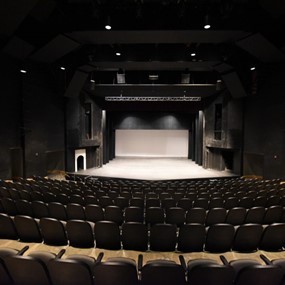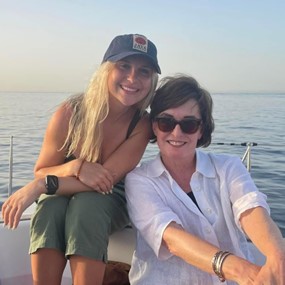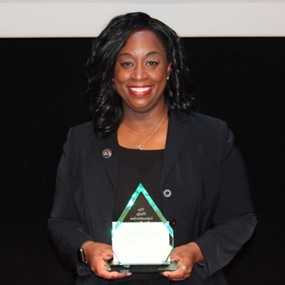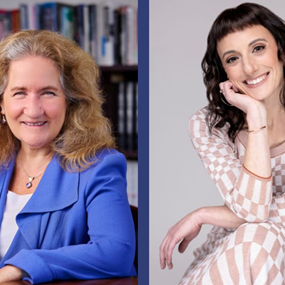Classroom champions: Auburn outreach work supports K-12 education
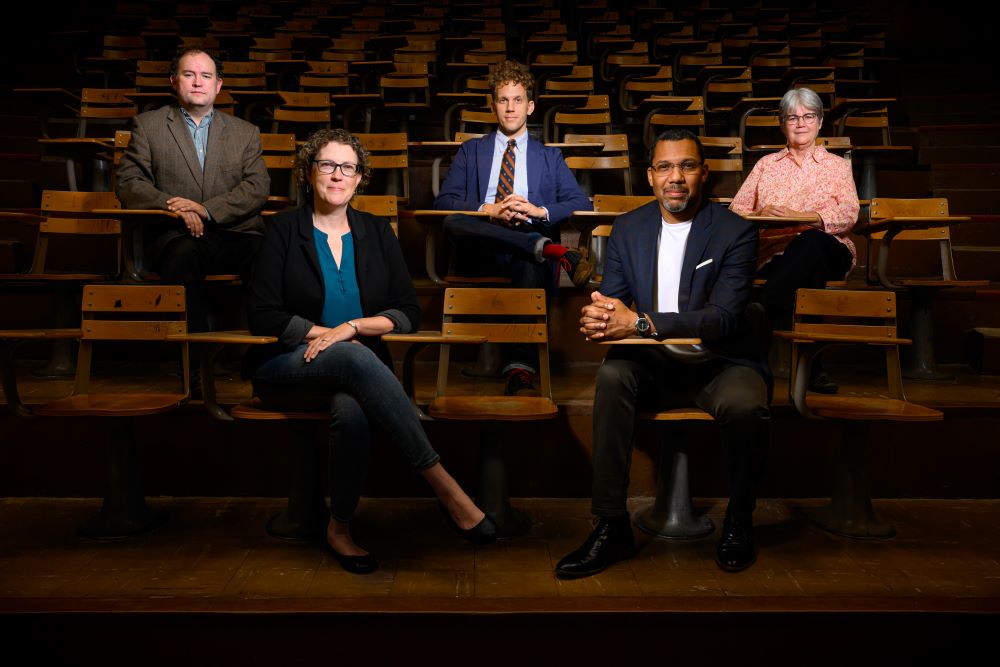
Across the state of Alabama, College of Liberal Arts faculty work to support K-12 education by sharing subject expertise and elevating community stories.
Sharing HERstory
Like many other female historians of her generation, Department Chair and Associate Professor Melissa Blair’s interest in history was sparked by American Girl Dolls. Today, Blair aspires to produce the same effect by introducing K-12 students to stories about real women in history.
“There’s so little women’s history in K-12 curriculums,” Blair said. “When fully half of the population can’t see themselves in what they’re being taught in school, can’t have any sense that anyone who looks like them was historically important except for three or four really remarkable women, that’s a problem.”
Blair serves as a content expert on women’s and gender history for professional development workshops. She teaches K-12 teachers locally through Auburn City Schools and the Alabama Board of Education, coaching teachers on how to deliver women’s history content to middle and high schoolers.
Through the Remedial Herstory Project, which is supported in part by the Library of Congress, Blair also develops lesson plans on women’s history that teachers from anywhere can download to use in their classroom.
“We are here to give our expertise to the people of the state of Alabama,” Blair said. “K-12 teachers have so many demands on their time, they do not have the time to go out and do the research themselves. That’s why online modules are great. It’s already packaged. It really helps, hopefully, move the needle on getting at least a little bit more women’s history into what’s in front of middle and high schoolers.”
Informing the community
Associate Professor of Journalism Nan Fairley has worked at the intersection of outreach and journalism for two decades. Through her involvement in the PACERS Rural Community Newspaper Network and Living Democracy, Auburn’s most valuable resource – its people – share community stories.
Through PACERS, a statewide outreach program started by Jack Shelton, Fairley directs the network in which students and faculty help small communities create their own newspapers. Since PACERS recruited Fairley two years ago, the program has helped establish the Beatrice Legacy, the Packers Bend Times, the Camp Hill Chronicle and the Pintlala Ledger.
Auburn students work with community members ranging from high school students to senior citizens to elevate community news through citizen journalism.
“Once you tell the stories, it connects people in the communities to each other and gets more involvement in local civic activities,” Fairley said. “We do a lot of history-related stories in those newspapers and health-related stories, which was particularly important during the pandemic when we started. The local voices were more trusted, so that has been an important focus in a lot of our papers. The newspapers honor their hometowns and the people in those places, who are always amazing.”
During the Living Democracy program, Auburn students spend 10 weeks in rural communities to find and share stories as they learn basic journalism skills.
Fairley said both projects are mutually beneficial relationships – students help boost civic engagement and engage others in storytelling while learning more about community journalism.
“One of the things we like to do is connect our journalism students to communities,” Fairley said. “Communities are the best classroom, particularly for anybody who wants to learn how democracy works or how to listen and how to understand people from different backgrounds. My passion for community journalism has translated into sharing that with my students at Auburn.”
Teaching Selma
Associate Professor of History Elijah Gaddis and Draughon Associate Professor of Southern History Keith Hébert bring teachers from across the country to the Black Belt to engage with history at the local level.
Their latest initiative, the “Bloody Sunday, Selma and the Long Civil Rights Movement” workshop, was funded by the National Endowment for Humanities. Dozens of teachers came to Selma to explore understudied people and places of the Civil Rights Movement.
The workshop focused on place-based learning, which connects community history with broader historic themes by immersing educators in the places where history happened.
“Teaching as a K-12 educator is one of the most difficult jobs in America,” Hébert said. “At Auburn University, we offer opportunities for teachers from across the country to come and gather in Alabama, which was so central to so many stories in American history, to share ideas openly, learn and think critically about how they’re going to take that information back to their students, wherever their districts may be.”
The workshop included tours of important Alabama Civil Rights Movement locations; Auburn faculty-led sessions on the history, landscape and teaching of Selma; and conversations with Selma foot soldiers.
Gaddis said in addition to the teaching material imparted by the workshop, teachers leave with an understanding of how to connect their own community’s story with history.
“It’s my mission as a professor at an outreach-heavy institution to really think about how we make connections between communities, their histories, their stories and a broader public that might otherwise not hear them,” Gaddis said. “There are multiple levels on which this acts as sort of a catalyst for bigger and broader work. Teachers can not only take that back to their classroom, but they can really think about how to do some of this outreach in their own communities.”
Protecting the arts
Assistant Professor of Theatre Abdul-Khaliq Murtadha teaches art’s role in outreach by promoting community storytelling in K-12 classes.
A professional actor, director and producer, Murtadha visits schools around Alabama to provide voice and acting lessons to introduce schoolchildren to the power of storytelling.
“If you catch them now, it instills confidence,” Murtadha said. “Storytelling is such a big part of how we go about life, how we talk about different businesses, how we market ourselves, how we market what our interests are, how we share what our interests are and information that we've come upon with the world. Getting them to realize how close they are to being able to tell these stories, the effortlessness that they can take with joy in telling these stories, is a big part of my job.”
In addition to theatre fundamentals, Murtadha encourages collaboration, helps students find their voice and sets them up to succeed in public speaking and presenting later in life. By bringing the arts into science, technology, engineering and math studies, Murtadha also hopes students embrace creativity regardless of their careers.
Murtadha said most K-12 students won’t have substantial arts experience otherwise unless they are enrolled in a specific, arts-focused program.
“The arts are incredibly underfunded in this country. However, there are resources,” Murtadha said. “The wonderful thing that Auburn has helped me to do is to be in contact with those schools that may not have the resources or the time to give a certain type of training, whether it’s voice or acting, to their students. Auburn has been elemental in making sure that the community is a part of the process.”
Learn more about outreach in the College of Liberal Arts.
Tags: Community, Outreach and Engagement History Communication and Journalism Theatre and Dance


